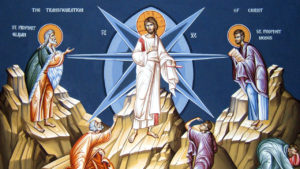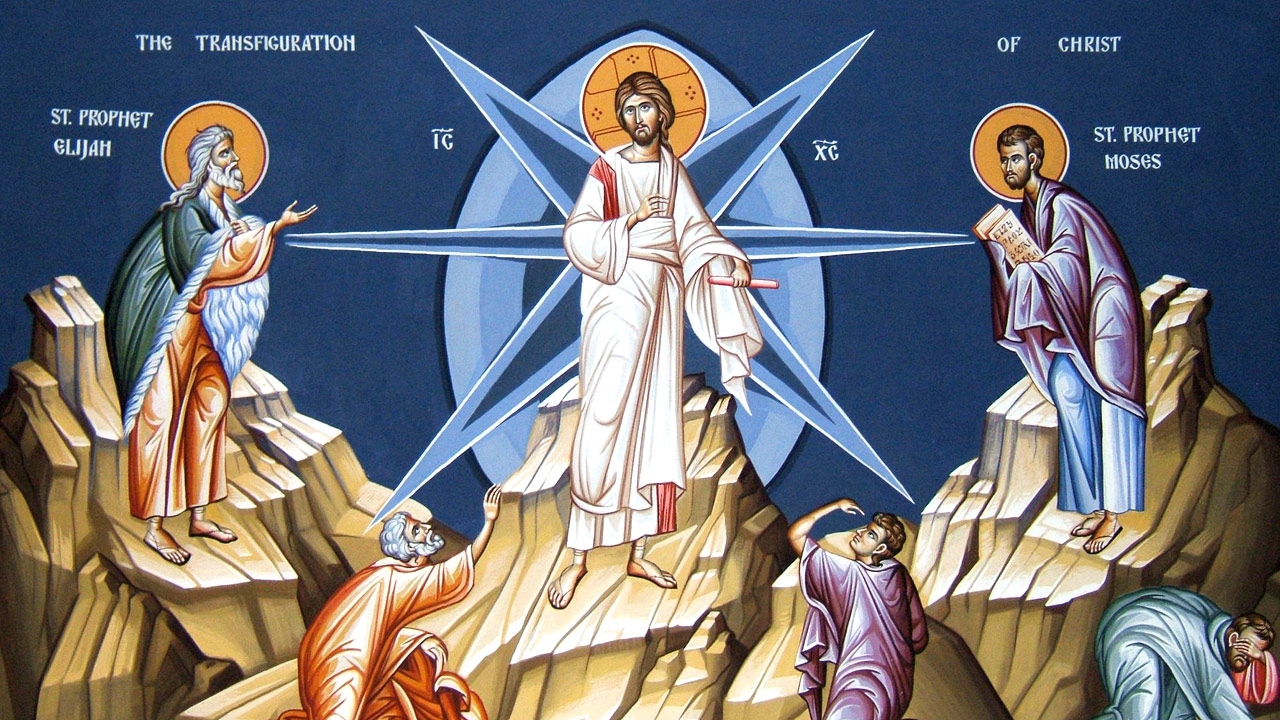 Central idea: The promise of eternal life. Doctrine: Grace. Practical application: Our response to grace.
Central idea: The promise of eternal life. Doctrine: Grace. Practical application: Our response to grace.
To view the Lectionary 25 readings, click here.
Central Idea: The promise of eternal life
Reading 1 Gn 12:1-4A
The LORD said to Abram:
“Go forth from the land of your kinsfolk
and from your father’s house to a land that I will show you.“I will make of you a great nation,
and I will bless you;
I will make your name great,
so that you will be a blessing.
I will bless those who bless you
and curse those who curse you.
All the communities of the earth
shall find blessing in you.”Abram went as the LORD directed him.
- God chose Abraham to be the origin and father of the Jewish people, and Abraham said yes: He “went as the LORD directed him.” Abraham listened to the Word of God and obeyed it.
- Through Abraham and his descendants, God has given us the progressive revelation of who God is and who we are. This revelation has been completed in Abraham’s descendant, the God-man, Jesus Christ.
- Therefore, “all the communities of the earth” have found “blessing in you.”
- We Catholics are especially blessed because our community of the earth, the Church, is the Body of Christ; we are the community of the people of God.
Responsorial Psalm Ps 33:4-5, 18-19, 20, 22
R. Lord, let your mercy be on us, as we place our trust in you.
Upright is the word of the LORD,
and all his works are trustworthy.
He loves justice and right;
of the kindness of the LORD the earth is full.See, the eyes of the LORD are upon those who fear him,
upon those who hope for his kindness,
To deliver them from death
and preserve them in spite of famine.Our soul waits for the LORD,
who is our help and our shield.
May your kindness, O LORD, be upon us
who have put our hope in you.
- We hope in God’s promises for temporal goods and for eternal happiness.
- We fear him because we could lose the promise of eternal life due to our sins, yet he helps us overcome our own weaknesses.
- God loves justice and right and he is kind. His eyes are on us as we wait for his promises to be fulfilled.
Reading 2 2 Tm 1:8b-10
Beloved:
Bear your share of hardship for the gospel
with the strength that comes from God.He saved us and called us to a holy life,
not according to our works
but according to his own design
and the grace bestowed on us in Christ Jesus before time began,
but now made manifest
through the appearance of our savior Christ Jesus,
who destroyed death and brought life and immortality
to light through the gospel.
- God’s plan for our life is based on the destruction of death and the gift of immortal divine life.
- Jesus Christ assigns us a difficult goal, but it is attainable with his grace: holiness of life now and forever.
- To live now “according to his own design” requires some “hardship,” but with the burden comes God’s gift of “strength” or grace.
Gospel Mt 17:1-9
Jesus took Peter, James, and John his brother,
and led them up a high mountain by themselves.
And he was transfigured before them;
his face shone like the sun
and his clothes became white as light.
And behold, Moses and Elijah appeared to them,
conversing with him.
Then Peter said to Jesus in reply,
“Lord, it is good that we are here.
If you wish, I will make three tents here,
one for you, one for Moses, and one for Elijah.”
While he was still speaking, behold,
a bright cloud cast a shadow over them,
then from the cloud came a voice that said,
“This is my beloved Son, with whom I am well pleased;
listen to him.”
When the disciples heard this, they fell prostrate
and were very much afraid.
But Jesus came and touched them, saying,
“Rise, and do not be afraid.”
And when the disciples raised their eyes,
they saw no one else but Jesus alone.As they were coming down from the mountain,
Jesus charged them,
“Do not tell the vision to anyone
until the Son of Man has been raised from the dead.”
- According to the Catechism, Christ wanted to strengthen the apostles’ faith in the face of the coming Passion (CCC 568).
- In addition, Christ’s glory, briefly revealed on the mountain, shows the hidden glory that his Body the Church contains and “radiates in the sacraments” (CCC 568).
- When we receive the sacraments of the Church, we participate in the Transfiguration. Peter, James, and John saw the radiance of the Son of God. In the sacraments, we receive that radiance. With the apostles, we have “the hope of glory” (CCC 568).
- The voice of the Father bids the apostles to “listen” to his beloved Son. To listen to Christ means both to comprehend what he says and to carry it out.
- If we listen to the beloved Son, one day we will hear that Son say to us, “Rise, and do not be afraid.” And we will hear the Father say to us, “This is my beloved son with whom I am well pleased” or “This is my beloved daughter with whom I am well pleased.” That will be our beginning of being raised from the dead.
Doctrine: Grace
- Paul writes of the grace bestowed on us in Jesus Christ.
- Simply put, grace is the “help that God gives us to respond to his call to become children of God” (CCC 1996)
- The Catechism tells us that “Grace is the help God gives us to respond to our vocation of becoming his adopted sons. It introduces us into the intimacy of the Trinitarian life.” (CCC 2021)
- As St. Paul points out, the holy life God calls us to is not the same life as we might otherwise work toward and even earn. His design or plan is that we should become “his adopted sons” sharing in “the intimacy of the Trinitarian life,” as the Catechism puts it. That is our divine vocation. Is anything more obvious, then, that this is impossible without God’s help? That help is grace.
- The Catechism goes on to say, “The divine initiative in the work of grace precedes, prepares, and elicits the free response of man. Grace responds to the deepest yearnings of human freedom, calls freedom to cooperate with it, and perfects freedom.” (CCC 2022)
- What does freedom yearn for? Doesn’t it want to choose perfect happiness forever?
- Yet we know from experience from our fallen human nature that our freedom is not that free. It needs to be healed and helped.
- This is why God’s grace does not replace our freedom or overpower our freedom. Instead, it does something else.
- Grace surrounds and guides our freedom, if we say yes to the grace. Grace is there before we make a choice, gets us ready to make that choice, and draws that choice out of us.
Practical application: Our response to grace
- Recall St. Paul’s advice: “Bear your share of hardship for the gospel with the strength that comes from God.”
- In our ordinary life this very week we will undoubtedly experience some hardship without looking for it. And we will bear some additional hardship if we are faithful to our Lenten resolutions.
- Let us be very aware that we have the strength that comes from God to bear these difficulties through the sacraments we have received: Baptism, Confirmation (if we have received it), Matrimony (if we are married), Holy Orders (in the case of a priest or deacon). Let is be specially aware and thankful for the Holy Eucharist, which we can receive every day this week if we want, and Confession, if we need it.
- Our lives will be conformed to the will of God this week (a) if we bear the small hardships that come from living the demands of the Gospel (b) by cooperating with the strength that comes from God in the Sacraments.
- For a little while, we are under a kind of dark cloud, but God’s “own design” is for us to be gloriously transformed, like Christ on the mountain, forever.
The Homiletic Directory suggests these Catechism points and themes for the Second Sunday of Lent:
- CCC 554-556, 568: the Transfiguration
- CCC 59, 145-146, 2570-2571: the obedience of Abraham
- CCC 706: God’s promise to Abraham fulfilled in Christ
- CCC 2012-2114, 2028, 2813: the call to holiness

Leave a Reply